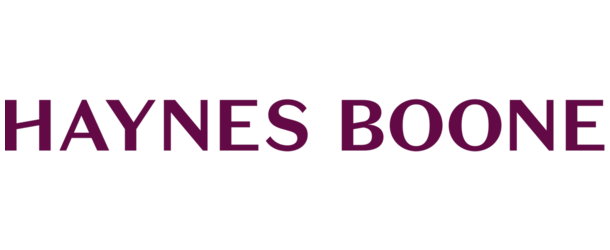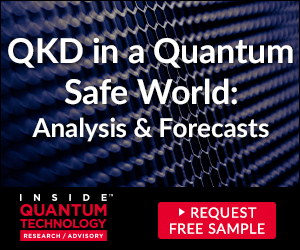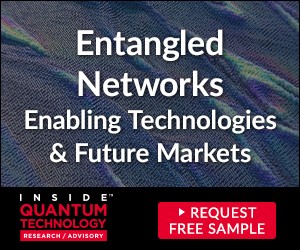Will National Security Concerns Obstruct Quantum Computer Finance?

Will National Security Concerns Obstruct Quantum Computer Finance?
Part 1: Inbound Funds
Introduction
Most quantum computing companies are on the hunt for two things (1) a way to develop and/or use a fault-tolerant quantum computer that provides an industry advantage and (2) funding to enable that development. There are, however, some hurdles and pitfalls quantum computing companies should avoid in their quest for cash.
Investors have been relatively eager to fund quantum computing companies, as they see quantum computing as being potentially revolutionary. In 2022-2023 alone, private investments in quantum worldwide have totaled more than $2 billion.[1] However, because quantum computing has revolutionary potential, there are, not surprisingly, several ways in which the application of quantum computing creates national security concerns. For example, encryptions, which are universally used to secure data, are complex algorithms designed to be unsolvable within a reasonable time period by humans and classical computers—but not quantum computers. As quantum computers become more advanced, quantum computing should have the ability to break some of the encryptions currently used for banking, e-commerce, Virtual Private Networks (VPN), etc. As one can well imagine, there are reasonable concerns that this technology may create issues with national security. As such, governments around the world are both (1) heavily funding quantum computing research and (2) beginning to regulate quantum computing companies specifically.[2]
Inbound Funds: Private Foreign Investment in Quantum
Quantum computing companies in the United States must be aware of the source of any funding that they receive. For example, certain foreign investments are subject to the rules outlined in the Foreign Investment Risk Review Modernization Act of 2018 (FIRRMA). Specifically, FIRRMA states that there are certain mandatory filings to the Committee on Foreign Investment in the United States (CFIUS) for foreign investments in a U.S. business that produces, designs, tests, manufactures, fabricates or develops a U.S. critical technology, which includes emerging and foundational technologies such as quantum computing.[3] FIRRMA created a mandatory declaration process for foreign investments in a U.S. business that deals with critical technologies, and “critical technologies” includes those technologies for which an export license is required for transfer to the country of the foreign investor.[4] Additionally, in September of 2022 an Executive Order called out quantum computing as a “specific area of concern” where foreign direct investment (FDI) will be scrutinized more heavily.[5] CFIUS scrutinizes transactions to determine “whether a covered transaction could reasonably result in future advancements and applications in technology that could undermine national security, and whether a foreign person involved in the transaction has ties to third parties that may pose a threat to U.S. national security.”[6] Further, CFIUS may even scrutinize minority investments of less than 10 percent in so-called “TID U.S. businesses”, which include companies that work with particularly sensitive technologies.[7] However, this jurisdiction is limited to deals where the foreign investor receives certain non-passive rights, such as access to material nonpublic technical information, board membership or observer rights, or involvement in decision-making regarding sensitive aspects of the company.[8]
Inbound Funds: Regulating and Limiting Sales through Export Controls
While quantum computing has a long way to go before it is commercially viable, many products and applications related to quantum computing are being sold. Thus, it is crucial for U.S. companies in or entering the quantum space to understand the ever-shifting U.S. export control laws and to keep apprised of any new developments going forward.
Overview of U.S. Export Controls
The export of U.S-origin technology is controlled by a number of U.S. government entities. For the quantum space, the most significant entities are:
(1) The U.S. Department of State’s Directorate of Defense Trade Controls (“DDTC”), which administers rules and regulations for the export of items and technology falling under the International Traffic in Arms Regulations (“ITAR”). The ITAR generally governs the export of defense articles, services, and related technical data.
(2) The U.S. Department of Commerce’s Bureau of Industry and Security (“BIS”), which administers rules and regulations for the export of commodities, software, and technology falling under the Export Administration Regulations (“EAR”). The EAR generally covers almost anything of U.S. origin[9], including so-called “dual use” items, which are items that have both civilian and military applications.
(3) The U.S. Department of Treasury’s Office of Foreign Assets Control (“OFAC”), which administers country-specific economic and trade sanctions, as well as restrictions on transactions with targeted persons or in certain industries in specified countries.
As used in the ITAR and the EAR, the term “export” covers a broad range of activities well beyond just the physical shipment of goods to a foreign destination. Therefore, to ensure compliance with applicable export controls laws, quantum technology companies should keep apprised of all activities that qualify as an “export.”
What is an Export?
First, the term “export” under the EAR includes not just the initial export, but also the re-export of goods. Generally, re-export means the shipment of an item subject to the EAR from one foreign country to another.[10] Thus, a license requirement or other restriction may still be applicable for a U.S. origin item exported from a country outside of the U.S. to another foreign country. Moreover, foreign-produced goods containing a specified level of U.S. content or, in some cases such as semiconductors, that are manufactured on U.S.-produced equipment or using U.S. technology, are subject to the EAR.
Next, and especially relevant to quantum technology, is a “deemed export”. The release of technical data or software source code to any foreign person, even if the release happens within the United States, is a “deemed export” to the foreign person’s most recent country of citizenship or permanent residency.[11] In this context, a foreign person includes anyone other than a U.S. citizen, lawful permanent resident, or certain protected individuals (i.e., those who have been granted asylum).[12] Importantly, the foreign person may be someone that is employed by a U.S. company; thus, to comply with applicable regulations, it is necessary for companies operating in the quantum space to establish internal safeguards for protecting the “deemed export(s)” by walling off employees either temporarily (until an export license is received) or permanently from this protected information[13].
Application of Export Controls to Quantum Technologies
Generally, quantum technologies will fall under the purview of the EAR as “dual use” technologies.[14] As such, quantum technology companies need to keep up with items listed in the Commerce Control List (“CCL”), which describes controls on specific items subject to the EAR either on a multilateral or unilateral basis. Currently, there is no provision in the CCL specifically addressing quantum technologies as a whole. However, an amendment to the CCL in 2019 added a specific mention of quantum cryptography technologies under the Export Control Classification Number (“ECCN”) 5A002.[15] Currently (unless the technology at issue falls under the classification of quantum cryptography) most quantum technologies will need to be broken into components and each component evaluated for potential export controls or licensing requirements.
Export controls are increasingly being used as a political, diplomatic, and economic tool. In particular, restrictions targeting specific companies and countries have been more widespread. One example of such restrictions is a 2021 final rule issued by the Department of Commerce limiting exports of “emerging technology” to eight Chinese companies that were alleged to be supporting the People’s Republic of China’s military development of quantum computing capabilities.[16] Another example of a targeted restriction comes from OFAC pursuant to Executive Order 14071, which prohibits the exportation, re-exportation, sale, or supply, directly or indirectly, from the U.S., or by any U.S. person, of quantum computing services to any person located in Russia.[17] This restriction is meant to work in concert with additional restrictions on exporting quantum computing hardware, software, and other technology to Russia and Belarus promulgated by the Department of Commerce.[18] Additional restrictions seem imminent, especially as the U.S. government continues to scrutinize Chinese technological investments and developments, including in quantum technology. Whereas Part 1 focuses on issues related to receiving inbound funds for quantum computing companies, our next article—Part 2—will delve into considerations for outbound funds and the need for quantum computing companies to pay attention to the shifting legal landscape. Part 2 will highlight a few pending pieces of U.S. legislation that if passed would further regulate aspects of quantum computing finance. Look for Part 2 to be published next week.
Takeaways:
- The country of origin is crucial in evaluating the viability of foreign funding, be it as a minority investment or for a potential acquisition.
- Quantum computing companies must have necessary safeguards to “wall off” foreign employees and investors as required under the law.
Peyton Meyer is an associate in the Intellectual Property Practice Group who focuses her practice in preparing and prosecuting patent applications. She is experienced in innovations in mechanical and medical technology. Tanner Luttrull is an associate in the Intellectual Property Practice Group in Haynes Boone’s Dallas office, his practice focuses on preparing and prosecuting U.S., Patent Cooperation Treaty (PCT) and foreign utility patent applications. Edward Lebow is counsel in Haynes Boone’s Washington, D.C., office. With over 30 years of experience representing clients in international trade cases, Edward obtains relief for U.S. industries injured by dumped or subsidized imports and successfully defends foreign companies against such actions. He is especially adept in advising clients on how to comply with U.S. trade laws and avoid costly legal proceedings.
[1] Quantum Technology Investment Update 2022 Review, The Quantum Insider 3 (February 2023), https://thequantuminsider.com/wp-content/uploads/2023/02/Quantum-Technology-Investor-Update_vFF.pdf.
[2] This paper will not address the government as a source of funding for quantum computing companies. (SUBJECT TO CHANGE)
[3] Beyond CFIUS: The Growing Use of Export Controls to Control Foreign Direct Investment, Shearman & Sterling (June 1, 2012), https://www.shearman.com/perspectives/2021/05/beyond-cfius–use-of-us-export-controls-for-foreign-direct-investment; See also 31 C.F.R. § 800.215(f).
[4] Id.
[5] Press Release, The White House, Executive Order on Ensuring Robust Consideration of Evolving National Security Risks by the Committee on Foreign Investment in the United States (September 15, 2022), https://www.whitehouse.gov/briefing-room/presidential-actions/2022/09/15/executive-order-on-ensuring-robust-consideration-of-evolving-national-security-risks-by-the-committee-on-foreign-investment-in-the-united-states/.
[6] Id.
[7] Robert A. Friedman et al., A Guide for Early-Stage Companies on Trade Compliance and Foreign Investment, Holland & Knight (August 4, 2022), https://www.hklaw.com/en/insights/publications/2022/08/a-guide-for-early-stage-companies-on-trade-compliance
[8] Id.
[9] EAR § 734.3(a)(1)-(3).
[10] See EAR § 734.14.
[11] EAR § 734.13(b).
[12] EAR § 772.1 “Foreign Person”.
[13] In some cases, export licenses can be obtained to allow employment of foreign nationals.
[14] A “dual-use” item is one that has civil applications as well as terrorism and military or weapons of mass destruction (WMD)-related applications. EAR § 730.3.
[15] See Encryption and Export Administration Regulations (2021), https://www.bis.doc.gov/index.php/encryption-and-export-administration-regulations-ear; See also Doreen M. Edelman, More “Emerging Technologies” Now Require an Export Review, Lowenstein Sandler (June 13, 2019), https://www.lowenstein.com/news-insights/publications/client-alerts/more-emerging-technologies-now-require-an-export-review-global-trade-national-security.
[16] See Addition of Entities and Revision of Entries on the Entity List; and Addition of Entity to the Military End-User (MEU) List for Bureau of Industry and Security, 86 Fed. Reg. 67317 (Nov. 26, 2021) (to be codified at 15 C.F.R. 744), https://www.federalregister.gov/documents/2021/11/26/2021-25808/addition-of-entities-and-revision-of-entries-on-the-entity-list-and-addition-of-entity-to-the; See also Press Release, Bureau of Industry and Security, Commerce List Entities Involved in the Support of PRC Military Quantum Computing Applications, Pakistani Nuclear and Missile Proliferation, and Russia’s Military (Nov. 24, 2021), https://www.commerce.gov/news/press-releases/2021/11/commerce-lists-entities-involved-support-prc-military-quantum-computing.
[17] Press Release, U.S. Department of Treasury, Treasury Targets Additional Facilitators of Russia’s Aggression in Ukraine (September 15, 2022), https://home.treasury.gov/news/press-releases/jy0954.
[18] Id.























